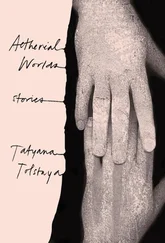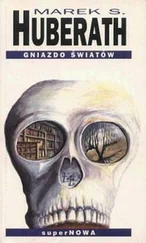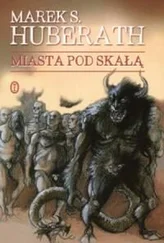An official change of social category was possible, but that happened only in cases of doubt, and Wilcox had unquestionably been a black. Also, raising someone’s category required that the category of another be lowered, and lowering could take place only upon an individual’s arrival from Lavath, because obviously no one would come forward afterward to ask for a lower category. Thus a petition for elevation could languish for years. Applications from persons without category (whites) were generally not even read.
The used-book store did little business. Agatha dozed by the cash register; Wilcox put prices on the books that came in; Greta walked through the store, now and then asking customers if they wanted something in particular. Gavein supervised. Mainly he had to find Wilcox when people brought books to sell. Wilcox was usually reading in the back.
“A man who has stood for twenty years at the corner of 2837 Avenue and 5312 Street, in every kind of weather, has the right to read our books before we sell them,” Wilcox told Gavein. Gavein scolded him but privately thought that Wilcox was right. After that, he didn’t hunt him down too assiduously.
It was easy to tell when Wilcox had found a good book. He would brew bitter tea in a half-liter metal pot and smuggle it into the storage area. He would sit at the old pigeonhole desk there and pull off his battered work shoes, which he wore year-round. His wool socks, darned in a dozen places, were multicolored (his wife being color blind). He would wriggle his toes to get the circulation in his feet going, take a sip of his bitter tea, and settle down to reading.
Wilcox’s ways were not that objectionable. Before long Gavein was adapting to them and even taking breaks himself to dip into the more interesting books.
It was not hard to imagine what Wilcox had been like as a policeman: preoccupied, his back to the street he was supposed to be monitoring, with untied shoes and nonregulation gear. The man had managed to keep his job until retirement, but not once was he promoted.
Occasionally Anabel would call, ask what was new and how Gavein was managing. She wanted details, but he cut the calls short. How had she obtained the phone number of the bookstore? What was she trying to find out?
While crossing a street, Max Hoffard, the letter carrier, was hit by a truck that veered out of control. He died on the way to the hospital. Because his Significant Name was Murhred , the police opened an investigation. His wife, a Sulledda , was placed in a hospital for the insane as a preventive measure, in case she attempted to take her own life. No one seemed to worry that this confinement might add to the widow’s distress.
Max’s death put a new strain on Gavein’s relationship with Edda. Suspicious stares, the avoidance of conversation. He waited for the senseless accusations to begin. He only had to wait two days.
“What did Max ever do to you?” she asked him at dinner. “Such a quiet man, he hurt no one. He brought you that TV set, and was always…”
Gavein said nothing, picking a piece of cardboard out of his teeth.
Massmoudieh said, “Stop, Edda. If there’s an eclipse of the sun or a river overflows, is that Dave’s doing too?” Although a white, he was speaking to a red without being spoken to.
It was plain from Edda’s face that she thought so.
Gavein lost patience. “But this is ridiculous. Before I came, people didn’t die in your wonderful Davabel?”
Edda considered the question. “They died, of course… But their deaths never touched me. I can’t remember anyone in my circle who died.”
There was no point arguing. Edda’s behavior had to be chalked up to what she had endured over the last few weeks.
Massmoudieh asked how the TV was working, and the iron. He shouldn’t have mentioned the present from Max. The TV worked, but the contrast was so poor and the images so distorted, you could barely see anything on the white screen. The iron, however, after a second repair, worked fine. Ra Mahleiné had been using it a bit. She was stronger, was again coming down for meals. There was even a little color in her cheeks now. When Mass asked her a question, she murmured some stock reply.
Their inflatable mattress was never inflated enough. When Gavein lay down beside her, she was lifted up. “The elephant is wallowing again,” she would snort, or, “The bag of potatoes broke.” Or sometimes it was, “Again I’m being catapulted.” Or, “The bear came and flopped in its den.” He loved this, because she complained only when she was in a good mood. After such a remark she would be all sweetness. Even back in Lavath, Gavein had observed that Ra Mahleiné scolded with style. He riposted with a playful “For Pete’s sake,” but only when she was in humor.
He bought an iron-frame bed at a secondhand store. They had only the one style. The paint was chipped, but the construction was solid, permanent, and the box spring too.
When he washed and got in bed, she began.
“You’re like a hippo in a river,” she gritted, instead of thanking him for the new bed. “The water makes such a racket, it’s worse than hammering. You splash, splash, and everything echoes, the whole house shakes. It’s enough to drive a person mad.”
Happy with these reproaches, because they meant she was herself again, he stretched out, his joints cracking. He took her in his arms. She was wonderful to the touch, warm and fragrant.
“It’s stuffy in here. The room is tiny, and you breathe so much of the air, there’s not enough for me. I have nothing!” she burst out, pulling away, but not pulling away too much, lest he let go.
He began to caress her, although she was angry with him. Her berating was always in earnest at first.
“What about me annoys you the most?” he asked, nibbling on her earlobe. When her hair was swept aside, you could see that Ra Mahleiné had ears that jutted. He didn’t want to hurry with her: the medical summary said that his wife would need an operation to be a normal woman again.
“What I hate the most is the way you slap peanuts into your mouth. I can’t watch television, because the whole sofa shakes,” she said without hesitation. Then changed the subject, understanding his gentleness with her in bed. She began to talk about her bleeding, which had been caused by the beating on the prison ship. Her flows were less frequent now, so she must be mending.
Only now did he make a connection between Anabel’s phone calls and the arrival of Ra Mahleiné’s medical records.
The damn witch waits like a vulture, he thought. She regrets that she didn’t finish my wife off when she had the chance.
Max’s widow, Bette Hoffard, was put in the room vacated by Hilgret. Wordless, pale as a corpse, she swept her surroundings with dull, unseeing eyes and took an enormous number of psychotropic pills. Often she forgot meals. Then Edda would send Laila up to her.
The insurance money allowed Edda to add a floor to the house. Although she asked 440 packets for the new apartment, she quickly found a taker: a worker at the local immigration office. Edda told everyone that the new tenants were Ian and his wife Phyllis.
The introductions were made at dinner. Ra Mahleiné wore a colorful sweater; she had just finished knitting it. The others at the table were gray and glum: Helga in mourning; Edda with her mind elsewhere; Zef bored, his Mohawk drooping; Gavein worried; and the Hougassians silent—they had had to send their daughter back to the hospital, because among Laila’s burns was an infected place that made grafting impossible.
Ian was a short, broad man of about sixty, his hair very thin. Gavein had seen him before and quickly remembered where. Ian’s wife was taller than her husband, wore glasses, had short curly hair, and was too animated and talkative. Both were reds, their hair dyed black except for the obligatory strip.
Читать дальше












